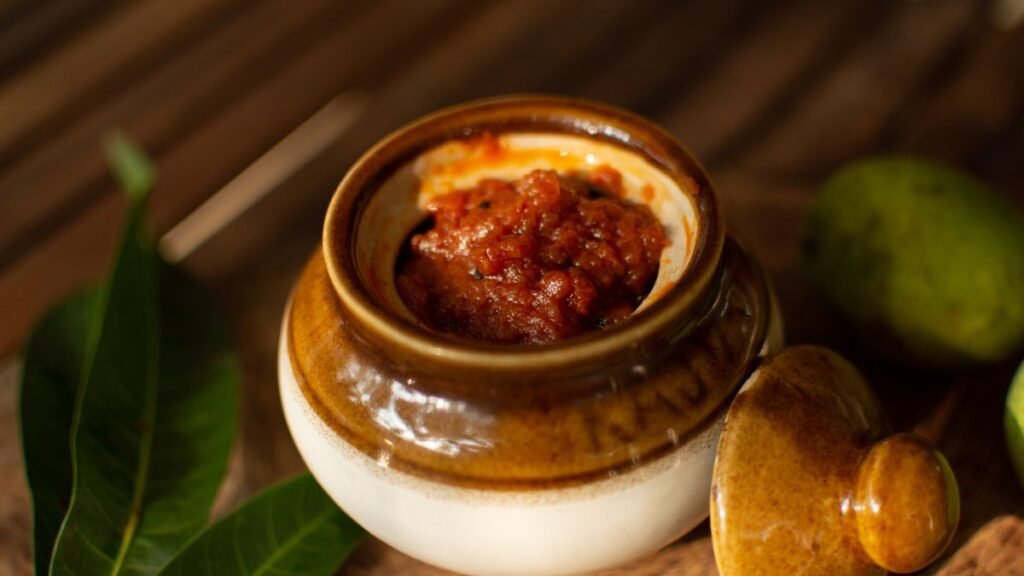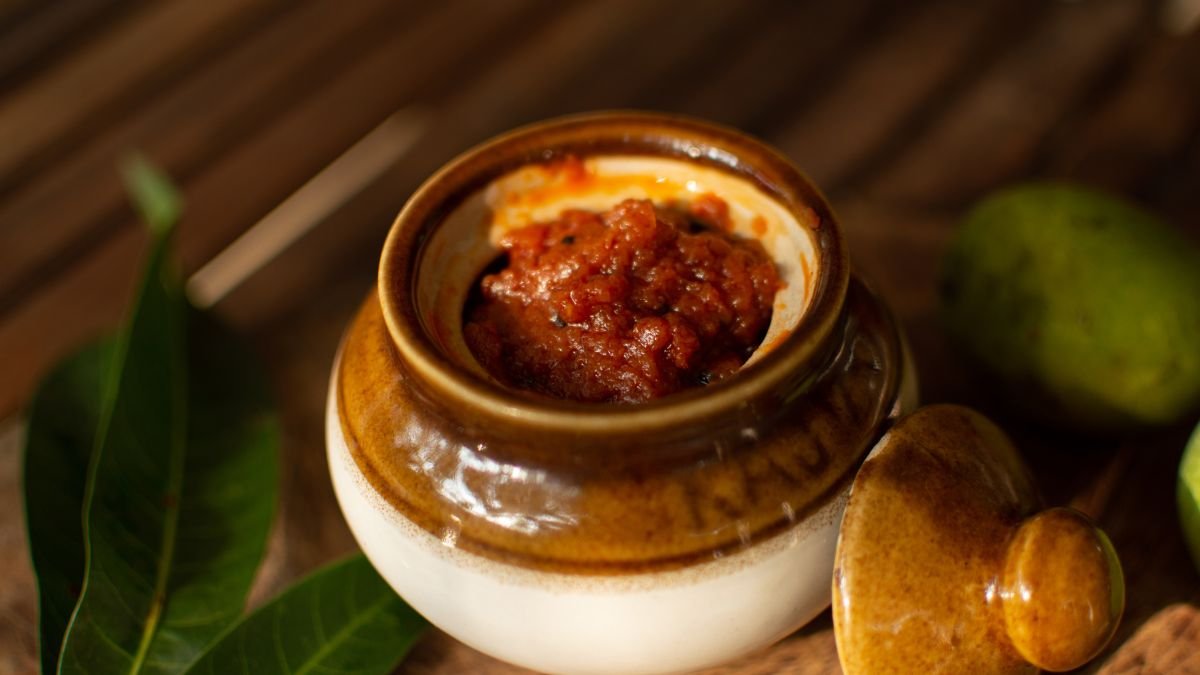Indian Pickle : History in a Jar | 5 Amazing Facts
The verb “to pickle” means to preserve something in a solution. That solution is often vinegar which, in its most basic form, is composed of water and acetic acid. Most bacteria can’t thrive in a highly acidic environment, so dipping a perishable food in vinegar helps to create a sort of natural force field against the microbes that cause spoilage.
The tradition of pickle making dates back a thousand years. According to some historians, pickles were first made in Persia, where fruits or vegetables were preserved in salt, vinegar, honey, or oil to last throughout the year. The word ‘pickle’ itself comes from the Dutch word pekel, meaning brine. But what about āchār; where did that come from? Although the origin of the word is ambiguous, the word āchār is widely considered to be of Persian origin. Āchār in Persian is defined as ‘powdered or salted meats, pickles, or fruits, preserved in salt, vinegar, honey, or oil.’

Indian pickles are of three basic types: those preserved in vinegar; those preserved in salt; and those preserved in oil. In Indian Pickle, oil is a popular medium used for pickling. The process of pickling is one of the best ways to preserve a food item. Once preserved, the pickled food will not need refrigeration, and so it travels well, making it ideal for long-distance journeys.
Mango pickles are by far the most popular Indian pickles, and there are hundreds of types of mango pickles in India. It is said that almost anything can be pickled – from vegetables, fruits, berries and gourds to leaves, shoots and roots, and even chicken, prawn, and fish.
Pickles fall into the category of ‘cooking without fire’; however, many indian pickles today do use heating or fire to some extent during preparation

Pickling is done by immersing fresh fruits or vegetables in an acidic liquid or saltwater brine until they are considered raw or vulnerable to spoilage. When we think of pickles, usually cucumber, mango and chili comes to mind. Pickled cucumbers are often lacto-fermented in brine. During this process lactic microbial organisms develop, which convert naturally occurring sugars in foods into lactic acid.
In turn, the environment quickly becomes acidic, making it impossible for any bad bacteria to multiply. Cucumber pickles can also be made with a salt and vinegar brine, which is a popular choice for home cooks. The saline known as “pickle juice” is sometimes used by athletes to treat dehydration, although this has not yet been proven as a true remedy.
Are pickles good for you?
Fermented pickles act like probiotics, protecting the body’s microbiome and supporting the growth of healthful bacteria in the gut.
The stomach contains millions of bacteria that help the body digest and absorb food. These bacteria may prevent yeast infections, help with Diarrhoea and constipation, and potentially aid the treatment of chronic stomach health issues, such as Crohn’s disease.
Benefits of Achar/Pickle
- Restoring electrolyte balance
Electrolytes are salts that the body needs for healthy functioning. When a person experiences dehydration, they may also lose electrolytes. Pickles are high in sodium, and so they are also high in electrolytes. Theoretically, this suggests that pickle juice might be an option for restoring electrolytes to people who have a fever, are vomiting, or who are dehydrated.
- Treating muscle cramps
Researchers electrically induced muscle cramps in well-hydrated men once and then a week later. They found that participants who drank pickle juice rapidly gained relief from their cramps.
- Controlling blood sugar
Pickles that use a vinegar-based brine may help control blood glucose. Stable blood glucose levels can help prevent feelings of intense hunger. Preventing blood glucose spikes is also critical to the health of people with diabetes.
Pickles have been an important part of Indian cuisine for centuries, and still remain a beloved part of Indian meals today. Indian pickles are an integral part of every meal, offering an added flavor, texture, and depth. Indian pickles can be enjoyed in many different forms, from the classic mango pickles to the more unusual flavors like garlic, chili, and ginger. Pickles are an important way of preserving foods in India, and they can be stored and enjoyed for months. The wide variety of pickles available in India makes them a perfect accompaniment to any meal.
Indian Pickles are not only a tasty addition to any meal, but also a cultural symbol of Indian cuisine. Indian pickles are a symbol of tradition and identity in India, and they are an important part of the culture. Indian pickles are a symbol of hospitality, and are often served as a welcoming gesture to guests. Pickles are also a reminder of the joys of food in India, and their unique flavors make them an essential part of the Indian culinary landscape.
Facts of Achar/Pickle
- Help in the growth of probiotic bacteria in your gut.
- Increases the supply of antioxidants in your diet.
- Pickles are known to boost our immune system.
- Help increase hemoglobin levels in your blood.
- In the Pacific Islands, natives pickle their foods in holes in the ground lined with banana leaves, and use them as food reserves in case of storms. The pickles are so valuable that they’ve become part of the courting process, helping a man prove he’ll be able to provide for a woman. In Fiji, guys can’t get a girl without first showing her parents his pickle pits.
Are you drooling after reading these mouth-watering pickle facts? Then give your gut what it desires.

